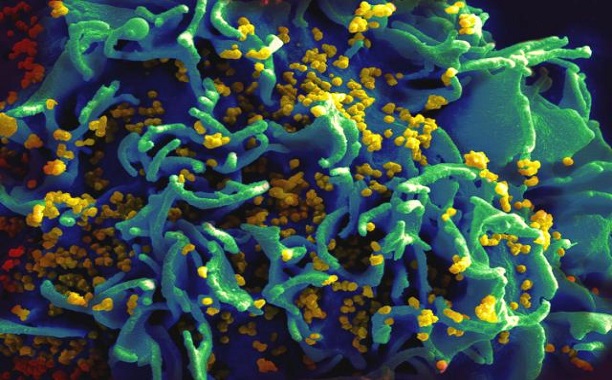Researchers have long worked toward a vaccine for HIV with little luck. Scientists now believe they have a promising “alternative vaccine,” described in a study published online this week.
The new compound has blocked HIV infection so well in monkeys that researchers believe it may work as a vaccine against AIDS in humans.
While researchers have found some broadly neutralizing antibodies capable of conquering several strains of HIV, many strains of the rapidly mutating virus are still resistant. Researchers believe they have discovered a new way to fight the virus using gene therapy, according to the Los Angeles Times.
Rather than using a vaccine to stimulate the body’s immune system to produce HIV antibodies, scientists have found they can bypass the immune system completely. In experiments involving monkeys and rats, scientists used non-life-threatening viruses to change the animals’ genome so its cells make designer molecules that can neutralize HIV.
The researchers used the technique to protect monkeys from several IV injections of SHIV, which is a combination of human immunodeficiency virus (HIV) and simian immunodeficiency virus (SIV). The team created a protein-based treatment that prevents the animals from becoming infected with SHIV, despite multiple large exposures.
When HIV enters the body, it attacks specific immune cells, copying itself over and over and killing more host cells while the immune system weakens. In most cases, the virus latches onto two different protein structures — CD4 and CCR5 — on the surface of the target white blood cells.
The scientists found that the new protein, called eCD4-Ig, deactivates every major strain of HIV they tested by binding to two receptors on the exterior of the HIV virus that it uses to bind and gain entry to human immune cells. When the eCD4-Ig protein attaches, HIV cannot enter immune cells and the virus changes shape to render it ineffective, Newsweek reported.
[quote text_size=”small” author=”– Matthew Gardner” author_title=”Lead study author, infectious disease researcher”]
Although there are remaining challenges, these observations suggest that AAV-expressed eCD4-Ig could provide effective, long-term and near universal protection from HIV-1.
[/quote]
The eCD4-Ig protein is important for many reasons. The protein seems to be more potent than any antibody ever developed, and less likely to interfere with or be recognized by the body’s immune system, allowing it to fly “under the radar” and accomplish its purpose.
HIV will have difficulty developing resistance to the new protein, according to researchers. Unlike antibodies, which bind to areas of HIV that the virus does not need to survive and can mutate, the protein targets sites necessary to bind to human immune cells.
Researchers are hopeful the technique will be well-tolerated in humans and may be transformed into a “vaccine” that can be given to protect millions from HIV, and keep people who are already infected from getting worse, according to the New York Times.
























